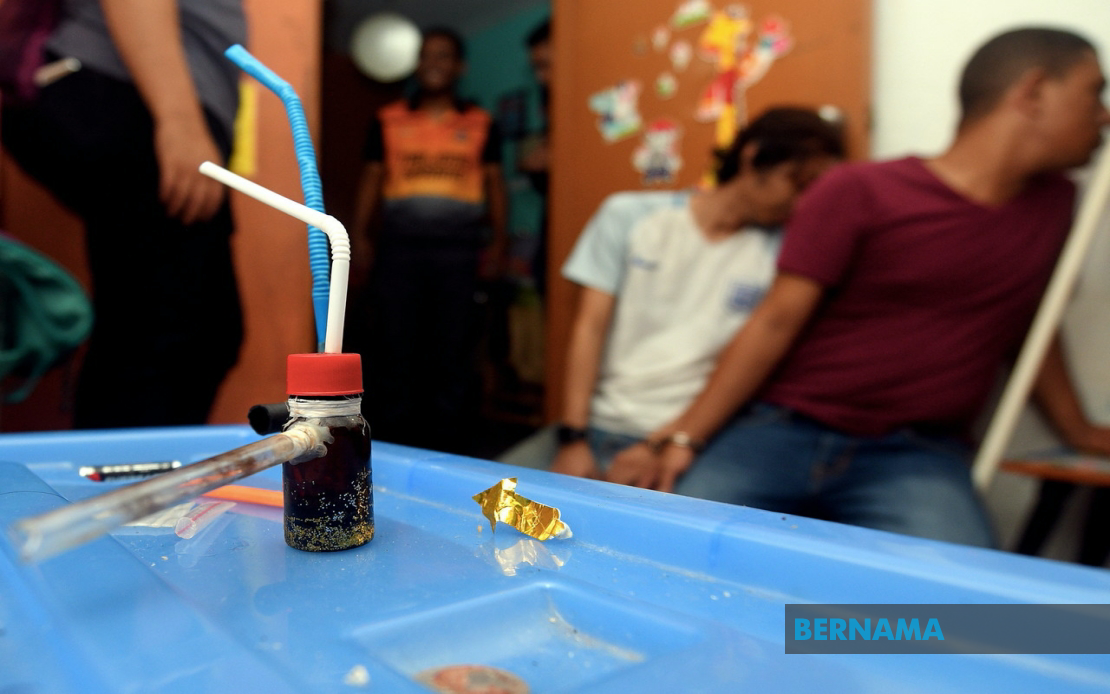Drug addiction should be managed by health sector - Dr Dzulkefly

KUALA LUMPUR, Jan 30 -- Addiction is a social health issue and should be managed by the health sector, not the criminal justice system, said Health Minister Datuk Seri Dr Dzulkefly Ahmad.
He said the current laws namely the Dangerous Drugs Act 1952 and Drug Dependants (Treatment and Rehabilitation) Act 1983 had criminalised all the people who used the drugs in many ways.
“Drug use, possession for personal consumption and those who were sent to Cure, Care Rehabilitation Centre (CCRC) for treatment will have a criminal record, which might prevent them from getting proper employment.
“Drug use needs to be viewed as a health and social issue. There need to be a clear distinction between recreational drug use, problematic drug use, and addiction and trafficking.
“We need to comprehensively review our current approach to the drug problem, taking into consideration ‘new drugs’ and Amphetamine Type Stimulants (ATS) epidemic in this region,” he said in his keynote address at a forum entitled “Rethinking Drug Policy in Malaysia with the Global Commission on Drug Policy” at Institute of Research Management and Services (IPPP) University of Malaya, here today.
Dr Dzulkefly pointed out that decriminalisation, which is now still under discussion, would indirectly help those drug users rather than be imprisoned for a period of a certain time.
”Decriminalisation means the ‘removal’ of criminal penalties for possessing and using a small number of drugs for personal use, as opposed to those who are involved in the trafficking of drugs. Drug trafficking will continue to remain a crime.
“Do not stigmatise them with being imprisoned, do not incarcerate them but then help them. Care provider, professionals, drug addiction experts are always there and we will, of course, reduce the burden, the heavy economic burden of imprisonments that is also important.
“I am truly taking the interest of the nation and citizens, nothing against religion,” he said, adding that there were a total of 161,945 drug users reported as of June 2019.
Dr Dzulkefly said once this decriminalisation process was finalised, the government could reduce the prison population significantly, saving money and lessen the workloads of its criminal justice system.
Furthermore, the court would have fewer backlog cases hence police would be able to channel more resources to crime prevention and serious crimes to make our community safer, the minister said.
Dr Dzulkefly has put the target to implement this game-changer policy (decriminalisation) before the end of Pakatan Harapan's term in office.
It was reported that, the government was moving towards a removal of penalties against drug possession for personal use, but this was not to be mistaken for legalising these substances.
The decriminalisation would be a critical next step towards achieving a rational drug policy that puts science and public health before punishment and incarceration.
-- BERNAMA
HealthEdge
EXCLUSIVE

Pet Vaccination, Public Awareness And Surveillance Key Towards Rabies-free Southeast Asia - Experts
KUCHING, Dec 11 (Bernama) -- The goal of making Southeast Asia free from human rabies can be achieved through a total understanding of the disease, how it can be prevented and responsible pet ownership among communities, say experts.
read more ››IN FOCUS

TAVI KAEDAH BAIK PULIH INJAP JANTUNG TANPA PEMBEDAHAN



